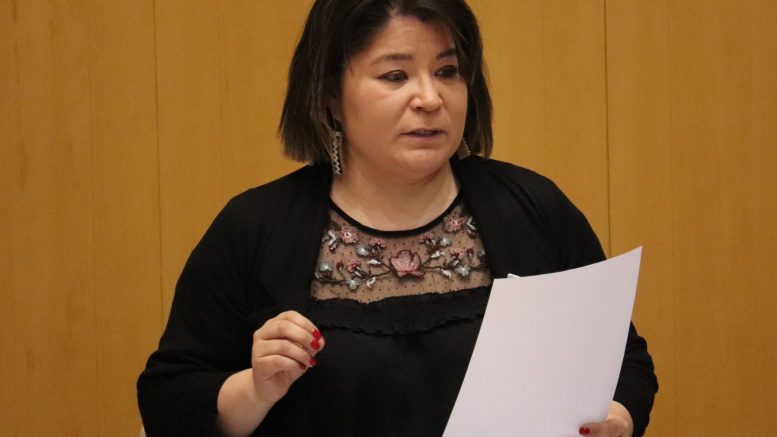Housing Minister Paulie Chinna will not step in to help the Yellowknife Womens’ Society secure funding for its Arnica Inn project.
A week and a half ago, the womens’ society had its funding application rejected to transform the Arnica Inn into transitional housing.
According to Bree Denning, the womens’ society’s executive director, the Canadian Mortgage and Housing Corporation (CMHC) rejected the application due to a lack of support from the territorial housing corporation.
Several MLAs questioned the minister in the house since the news became public.
Chinna took the opportunity to say the housing corporation did support the project but would only throw in the financial backing if the CMHC approved the funding application, effectively creating a stalemate between the two housing corporations.
In a previous interview, Denning told CKLB that the owners of the Arnica Inn have repeatedly pushed back the deadline to sell the building to the women’s society.
That deadline is March 31, but the CMHC has a 300-day turn around for funding applications.
Yellowknife North MLA Rylund Johnson asked Chinna if she would call the CMHC to clarify the territorial housing corporation’s position and to commit it would provide its share of the funding—between $650,000 and $660,000.
Rather than agree to be proactive, the minister again pushed responsibility onto the womens’ society to get in touch with the NWT housing corporation to help re-apply, not acknowledging the CMHC’s lengthy turn around time.
Now the womens’ society is stuck between two housing corporations, both of which need the other’s support for the project to move ahead.
The transformation of the Arnica Inn would have provided 42 units of supportive housing for Yellowknife’s homeless population.
In a letter from Denning to Minister Chinna, dated February 18, she writes, “This project would have met the needs of a key demographic of homeless individuals, who need the social support and safety of in-house staff to help them meet their day to day needs.”
The letter concludes, “In rejecting this project, the Government of the Northwest Territories is opting instead to allow forty-two vulnerable individuals to continue to suffer the health, social and psychological consequences of homelessness for years to come.”








